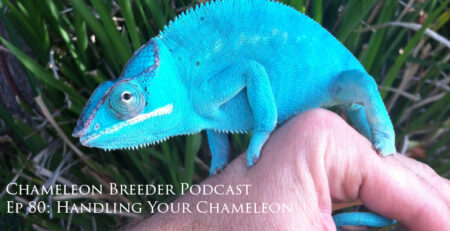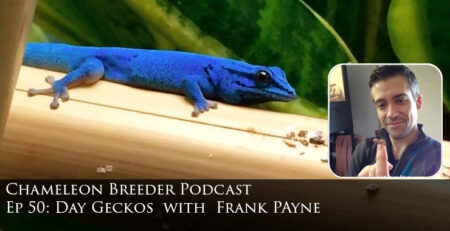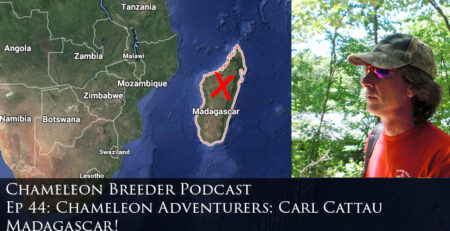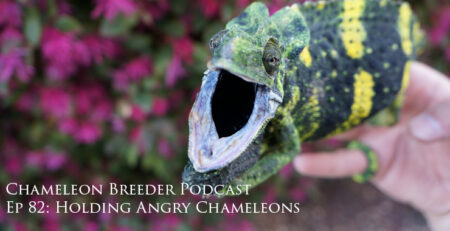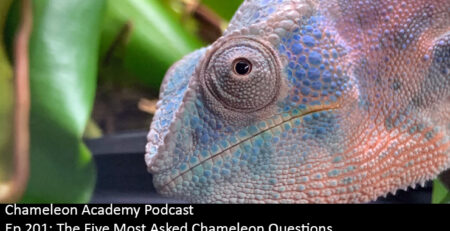Bill Strand Interview on Animals At Home Podcast
I’d like to invite you to check out the Animals At Home Podcast, episode 92 where Dillon Perron interviews me about the chameleon community, Chameleon Academy, and Dragon Strand.
This is a very good interview where we touch on important topics regarding where we are going as a community. We talk about the Panther Chameleon Breeding Lifecycle project I have been working on where I am modelling a breeding model that is specifically designed for optimal chameleon care and breeder happiness/satisfaction. That is the way we can expand and maintain the experience and knowledge base in our community.
I got excited about the Animals At Home podcast when I listened to episode 86 with TC Houston where he talked about small batch breeding. This was about keeping your breeding operation purposefully on the small side. Although, if what TC was talking about was “small” then what I am talking about doing is “micro”! Of course, once you have the micro aspect down, scaling up to whatever is appropriate is no problem! But this episode resonated with me and I loved hearing the concepts I had been thinking said out loud by someone else. One of the most powerful discussion topics on this episode was the talk about reaching a critical mass with the size of community. To survive we need to grow. This applies politically, in buying power, and demand for basic infrastructure such as availability of vets with reptile experience. You know how hard it is to find reptile experienced veterinarians? This is because we are coming out of a time period where reptile experience was a side business and something taken on because of the vet’s personal passion. But the vet would have to see cats and dogs to pay the bills. When we grow as a community it becomes possible for vets to be dedicated to reptiles and that makes them better at serving us which makes us more successful and strengthens the community. So it is in our best interests to grow.
Next was episode 88 with Chelsea Isdaner where she talked about her breeding operation where she has her breeding group in naturalistic cages. Each breeder is treated as a pet. And this is the next step for us in the chameleon community. I think we have achieved the first step which was to make naturalistic keeping the norm for beginners. And we have achieved that beautifully. Now it is wide spread for chameleon cages to be lush with natural plants. The next step, in my mind, is to bring that into our breeding set-ups. We have done well mass producing panther chameleons in sterile, easy to clean environments. And this is necessary if you have a lot of breeders. I’d like to bring the spotlight to craft breeding where each breeder is set up in a large size cage filled with live plants and treated like a pet. My purpose in this is to raise the life quality of the chameleons and maintain the happiness level of the human. This strengthens our community.
So I invite you to listen to these episodes. You can get on the new wave as it builds! I’ll be doing a complete podcast episode fleshing out these thoughts soon so we can continue this conversation.





